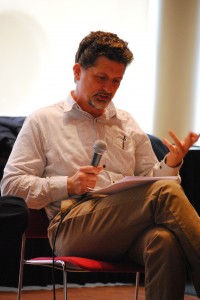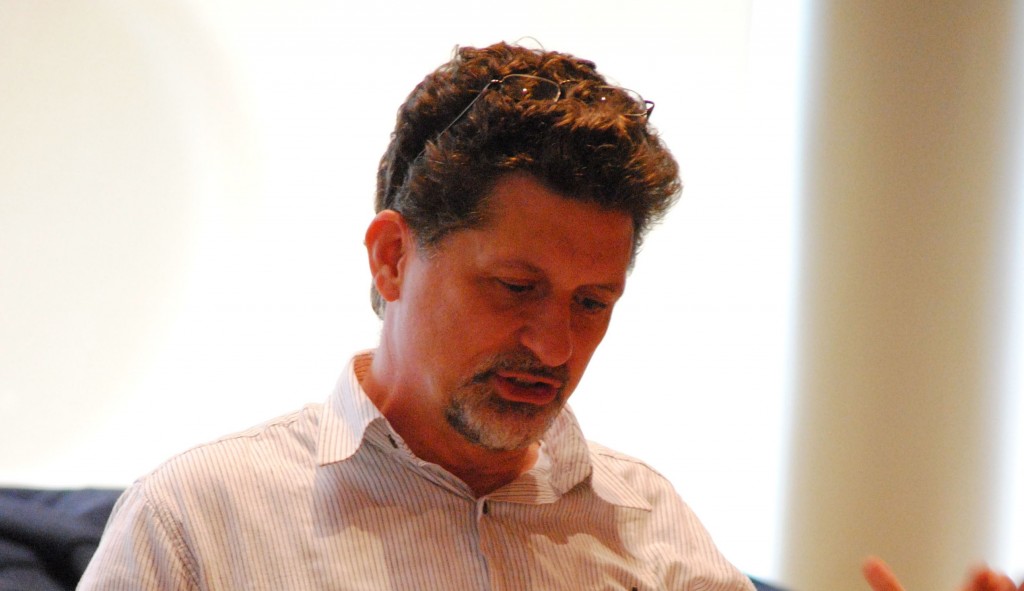By Chase Booth
boothcha@grinnell.edu
When thinking of religious extremism, one may think of hate crimes, acts of violence, and the Westboro Baptist Church, or even monks or celibate nuns. All of these topics and more were covered during Wednesday’s convocation, “Is the Extreme More Authentic? A Dialogue on Religious Fundamentalism.” Chaplain Deanna Shorb, Assistant Chaplain Rob Cabelli and Chair of Religious Studies Tyler Roberts tackled issues of religious extremism in an open discussion of religion.
“We’re exploring topics that interface religion and science, reason and create spirituality, social justice and public policy,” Cabelli said. “Today, what we want to do is to pull on one half of this subject: the question of whether the most fundamentalist or extreme form of the faith tradition is necessarily the most authentic. Of whether this is truly the viewpoint generally portrayed in our national and global media, and what the repercussions of all of this might be.”

Much of the discussion of Wednesday’s convocation consisted of defining a baseline idea for what true, authentic religion is. Without determining what form “authentic” religion takes, we cannot accurately describe from a scholarly viewpoint what form the extreme of that religion takes.
Roberts started the discussion on authentic religion by attempting to define what religious extremism is, describe what constitutes fundamentalist religion and what exactly “real” religion is.
“Do we mean that extremists or fundamentalists are more true to the original or traditional than others?” asked Roberts.
He said the problem with answering these questions is determining who has the authority to make decisions regarding certain religions.
“Is it possible for someone from the outside to develop a criteria for saying, ‘this is authentic,’ or ‘real’ Judaism or Christianity?” he said. “People will fight a lot about what is real Judaism or what is real Islam or what is real Buddhism.”
The panel also focused on the question of how one can place the authenticity of a religion on a spectrum of extremism.
“There are so many individual as well as collective agendas and influences that push us towards one viewpoint or another,” Cabelli said.
Shorb argued that language is a huge factor in trying to determine religious authenticity.
“Language is really important because I would avoid ‘devout’ like the Plague because it means I’m going pass judgment on what it means to be devout, right?” she said “And I, as a Christian, somehow know what it means to be a devout Muslim or whatever sect or whatever country or whatever culture. It’s very, very diverse, right? So how would I know?”
After the discussion, Roberts, Shorb and Cabelli opened the floor to questions and comments the audience had. Many audience members had questions concerning the authenticity of different sects and whether extremism was motivated in part by a religions pursuit of salvation.
This convocation was the first of three convocations to be held on religion and society this semester, which is co-sponsored by the Council on Religious Life and the Chaplain’s Office. The second one will be held at the end of February and the final one held right after Spring Break at the beginning of April.





























































